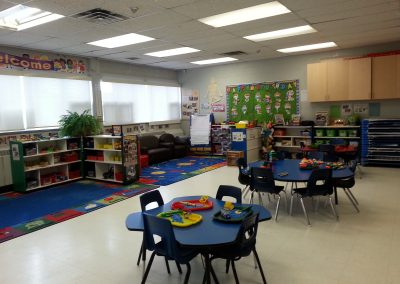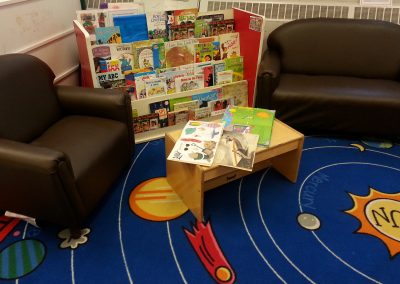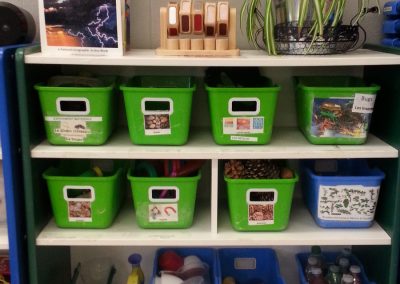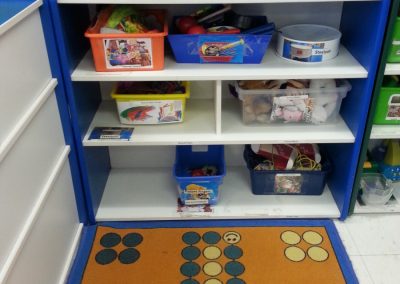PROGRAMS
Petit Pearson offers a variety of programs for various ages from toddlers to school age children. Our staff create program plans that are based on the interests and needs of the children.
Young Preschoolers – Ages 2+
Two year old children examine everything they see, hear, feel and observe in an attempt to make sense of the world around them. In our preschool programs, our educators interact, observe and interpret the interests of preschool children to encourage further discoveries by planning activities and investigations that expand your child’s learning.
Socialization
Early preschoolers are also learning how to manage their strong impulses and emotions in ways that will help them successfully navigate their world. Two-year-olds are developing their independence, and many opportunities are provided for them to do this. Our educators work with our families to introduce, encourage and practice new social skills, including sharing, negotiation, self-assertion, managing frustrations, recognizing the need for moments of quiet time and empathy.
Older Preschoolers – Ages 3+
The educators provide a range of activities to stimulate a preschooler’s love of learning. Children are involved in music, art, scientific observation and experimentation, pre-literacy, reading and writing, French, pretend play, yoga, and physical play. All of these activities help them explore new things about themselves, one another and their environment. We also focus on nutrition, educating children where food comes from and the basic knowledge of food groups and vitamins. We support the learning with the healthy and tasty food from our catering company’s wholesome food.
Areas of Development
Our preschool program offers foundational skills in a progressive and fun environment. The preschool program focuses on structure and developing autonomy, with an emphasis on cognitive learning; including number and letter recognition introduced through puzzles, games and our pre-literacy reading and writing program.
Our preschool program provides a foundation for developing greater independence, problem-solving, integrating new concepts into their world view and incorporates elements to promote sharing and mutual respect. Our trained educators help children to understand routines, which simultaneously allows them to feel competent and confident in their current preschool classrooms and prepares them for kindergarten.
Reading and Writing
Our reading and writing program stimulate children about learning the alphabet, while significantly improving their Phonological awareness. The program is designed on the principles of multi-sensory learning and consists of four main styles of learning: visual (looking at the letter), auditory (listening to the letter sound), kinesthetic (sky writing the letter), and tactile (printing the letter on a sensory tray like sandpaper). The program is based on thorough early educational research on phonics instruction and phonological awareness skills.
Healthy & Nutrition Food
The program provides a healthy meal where the children are given adequate time to enjoy their lunch and snacks which promotes social interactions and self-help skills. Children sit in small groups during meal and snack times; children self-serve all foods; and, assist with meal and snack routines. Our food is catered daily by Food for Tots.
- The morning snack program is between 8:00 a.m. to 8:45 a.m.
- The lunch program is between 11:00 a.m. to 12:30 p.m.
- The afternoon snack program is between 3:45 p.m. to 5:00 p.m.
NAP TIME:
The educators take reasonable steps to ensure that the children’s need for sleep and rest are met regarding their age and developmental stages.
The following are some of the guidelines for providing sleep and rest times at the Centre:
- Educators will ensure that the children’s cots and sheets are clean and in good condition.
- Each child sleeps in his or her own labeled cot.
- Sleeping children will be supervised by the educator at all times.
- Educators will sit near the resting child and support he/she by encouraging them to relax.
- Educators will encourage the child to rest his/her body at least for 20 minutes. If the child is awake, the child will be provided with quiet learning experiences for the duration of rest time.
- Educators will be sensitive to each child’s needs so that sleep and rest times are a positive experience.
- Sleeping child will be visually checked daily, every 15 minutes, by an assigned educator.





